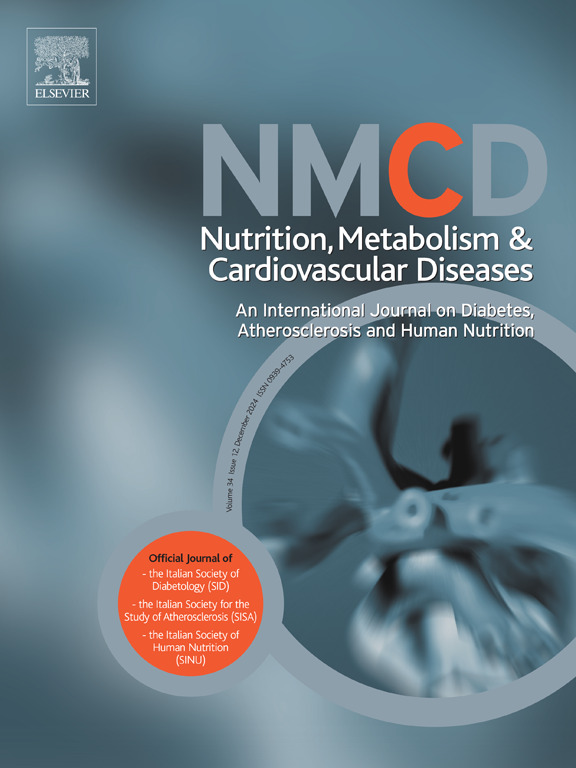Social, cultural and ethnic determinants of obesity: From pathogenesis to treatment
IF 3.3
3区 医学
Q2 CARDIAC & CARDIOVASCULAR SYSTEMS
Nutrition Metabolism and Cardiovascular Diseases
Pub Date : 2025-02-01
DOI:10.1016/j.numecd.2025.103901
引用次数: 0
Abstract
Aims
Obesity is a multifactorial disease influenced by several factors including poor diet, physical inactivity, and genetic predisposition. In recent years, the social and environmental context, along with race/ethnicity and gender, have been recognized as factors influencing obesity risk beyond traditional risk factors. This review aims to increase knowledge of these causal determinants and their implications for the treatment and management of obesity, addressing not only the individual but also the societal sphere.
Data synthesis
A growing body of evidence emphasizes the interaction between the physical and social environments in shaping personal behaviors related to obesity. Social disparities, such as socioeconomic status (income, education, employment), racial/ethnic differences, and gender, contribute significantly to weight gain from childhood to adulthood. These factors increase the risk of obesity and related cardiovascular risk factors, independent of clinical and demographic variables, and may lead to stigma and discrimination against those affected.
Conclusions
Obesity prevention solutions, from community programs to national policies, may be more effective if they address social, gender, and ethnic barriers. Understanding obesity requires a comprehensive approach that includes social, environmental, and psychological factors, as well as biological causes, to help obesity experts develop more effective interventions tailored to obesity and related diseases.
肥胖的社会、文化和种族决定因素:从发病机理到治疗。
目的:肥胖是一种多因素疾病,受多种因素影响,包括不良饮食、缺乏运动和遗传易感性。近年来,社会和环境背景以及种族/民族和性别已被认为是超越传统风险因素的影响肥胖风险的因素。本综述旨在增加对这些因果决定因素及其对肥胖治疗和管理的影响的认识,不仅涉及个人,也涉及社会领域。数据综合:越来越多的证据强调物理和社会环境之间的相互作用在塑造与肥胖有关的个人行为。社会差异,如社会经济地位(收入、教育、就业)、种族/民族差异和性别差异,对儿童期到成年期的体重增加有重要影响。这些因素增加了肥胖和相关心血管危险因素的风险,独立于临床和人口统计学变量,并可能导致对受影响者的污名化和歧视。结论:预防肥胖的解决方案,从社区项目到国家政策,如果能解决社会、性别和种族障碍,可能会更有效。了解肥胖需要一种综合的方法,包括社会、环境、心理因素以及生物原因,以帮助肥胖专家针对肥胖和相关疾病制定更有效的干预措施。
本文章由计算机程序翻译,如有差异,请以英文原文为准。
求助全文
约1分钟内获得全文
求助全文
来源期刊
CiteScore
6.80
自引率
2.60%
发文量
332
审稿时长
57 days
期刊介绍:
Nutrition, Metabolism & Cardiovascular Diseases is a forum designed to focus on the powerful interplay between nutritional and metabolic alterations, and cardiovascular disorders. It aims to be a highly qualified tool to help refine strategies against the nutrition-related epidemics of metabolic and cardiovascular diseases. By presenting original clinical and experimental findings, it introduces readers and authors into a rapidly developing area of clinical and preventive medicine, including also vascular biology. Of particular concern are the origins, the mechanisms and the means to prevent and control diabetes, atherosclerosis, hypertension, and other nutrition-related diseases.

 求助内容:
求助内容: 应助结果提醒方式:
应助结果提醒方式:


